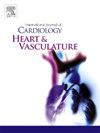Effects of traditional Chinese exercises on the rehabilitation of patients with chronic heart failure: A meta-analysis
IF 2.5
Q2 CARDIAC & CARDIOVASCULAR SYSTEMS
引用次数: 0
Abstract
The systematic meta-analysis was conducted to evaluate the clinical efficacy of Traditional Chinese Exercises (TCE) in the rehabilitation of patients with chronic heart failure (CHF). The findings provide evidence-based support for the implementation of non-pharmacological interventions in the management of CHF. A systematic search of PubMed, Web of Science, Cochrane Library, and Embase (up to November 2024) identified RCTs evaluating Traditional Chinese Exercise (TCE) for chronic heart failure rehabilitation. The Cochrane Risk of Bias Tool assessed study quality. RevMan 5.4 calculated mean differences (MD) with 95 % CIs; heterogeneity was evaluated using the I2 statistic (P < 0.05). Fifteen RCTs involving 1,132 patients (573 intervention, 559 control) were included. Meta-analysis revealed that TCE significantly improved CHF outcomes: reduced BNP levels (MD=–38.34, 95 %CI:[–54.88, –21.79], P < 0.00001), increased 6-minute walking distance (MD = 49.75, 95 % CI:[33.86,65.65], P < 0.00001), elevated LVEF (MD = 2.91, 95 % CI:[1.32,4.50], P = 0.0003), and lowered MLHFQ scores (MD = –9.58, 95 % CI:[ –12.75, –6.40], P < 0.00001). NT-pro BNP levels also decreased significantly (MD = –547.14, 95 % CI:[ –698.38, –395.90], P = 0.0001). This meta-analysis demonstrates that traditional Chinese exercises (including Tai Chi, Baduanjin, and Liuzijue) as adjunctive rehabilitation for chronic heart failure patients yield significant clinical benefits compared to conventional treatment alone. The interventions showed marked improvements in cardiac function parameters (BNP, NT-proBNP, and LVEF levels), exercise capacity (6MWT assessment), and quality of life (MLHFQ scores). These findings provide robust evidence for integrating traditional Chinese exercises into comprehensive rehabilitation management for chronic heart failure patients.
中国传统运动对慢性心力衰竭患者康复的影响:meta分析
采用系统荟萃分析的方法评价中医操(Traditional Chinese Exercises, TCE)对慢性心力衰竭(CHF)患者康复的临床疗效。研究结果为在CHF管理中实施非药物干预提供了循证支持。通过对PubMed、Web of Science、Cochrane Library和Embase(截至2024年11月)的系统搜索,确定了评估传统中国运动(TCE)对慢性心力衰竭康复的随机对照试验。Cochrane偏倚风险工具评估研究质量。RevMan 5.4计算95% ci的平均差异(MD);采用I2统计量评估异质性(P < 0.05)。纳入15项随机对照试验,共1132例患者(干预573例,对照组559例)。荟萃分析显示,TCE显著改善了CHF结局:降低BNP水平(MD= -38.34, 95% CI:[-54.88, -21.79], P < 0.00001),增加6分钟步行距离(MD= 49.75, 95% CI:[33.86,65.65], P < 0.00001),提高LVEF (MD= 2.91, 95% CI:[1.32,4.50], P = 0.0003),降低MLHFQ评分(MD= -9.58, 95% CI:[-12.75, -6.40], P < 0.00001)。NT-pro BNP水平也显著降低(MD = -547.14, 95% CI:[-698.38, -395.90], P = 0.0001)。本荟萃分析表明,与常规治疗相比,传统中国运动(包括太极拳、八段锦和六子角)作为慢性心力衰竭患者的辅助康复治疗具有显著的临床效益。干预显示心功能参数(BNP、NT-proBNP和LVEF水平)、运动能力(6MWT评估)和生活质量(MLHFQ评分)显著改善。这些研究结果为将中医运动融入慢性心力衰竭患者的综合康复管理提供了有力的证据。
本文章由计算机程序翻译,如有差异,请以英文原文为准。
求助全文
约1分钟内获得全文
求助全文
来源期刊

IJC Heart and Vasculature
Medicine-Cardiology and Cardiovascular Medicine
CiteScore
4.90
自引率
10.30%
发文量
216
审稿时长
56 days
期刊介绍:
IJC Heart & Vasculature is an online-only, open-access journal dedicated to publishing original articles and reviews (also Editorials and Letters to the Editor) which report on structural and functional cardiovascular pathology, with an emphasis on imaging and disease pathophysiology. Articles must be authentic, educational, clinically relevant, and original in their content and scientific approach. IJC Heart & Vasculature requires the highest standards of scientific integrity in order to promote reliable, reproducible and verifiable research findings. All authors are advised to consult the Principles of Ethical Publishing in the International Journal of Cardiology before submitting a manuscript. Submission of a manuscript to this journal gives the publisher the right to publish that paper if it is accepted. Manuscripts may be edited to improve clarity and expression.
 求助内容:
求助内容: 应助结果提醒方式:
应助结果提醒方式:


